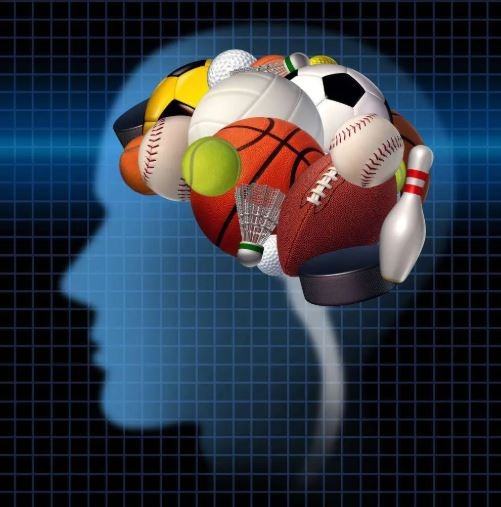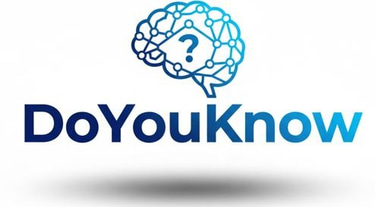Do You Know How Sports Shape Our Mind and Body
Sports are more than just games. They are powerful tools that shape our physical health, strengthen our mental well-being, and teach life lessons. Discover how sports influence both the mind and body and why they are vital for everyone.
ENTERTAINMENT & SPORTS
Do You Know Team
7/22/20253 min read


When we think of sports, many imagine stadiums, cheering crowds, or athletes chasing glory. But sports are not limited to professional competitions—they are a part of human life and culture. From children playing cricket in India to people jogging in a park, sports bring movement, energy, and joy. But beyond entertainment and fitness, sports profoundly shape our mind and body. They build muscles, improve health, sharpen the brain, and even develop social skills. In fact, sports are as much about mental growth as they are about physical strength.
This article explores how sports influence every part of us, from our physical health to emotional well-being, and why they remain essential in modern life.
1. Building a Stronger Body
Sports are one of the best ways to stay physically fit. Regular participation helps:
Improve cardiovascular health by strengthening the heart.
Enhance flexibility and muscle tone.
Control weight by burning calories.
Strengthen bones and joints, lowering the risk of osteoporosis.
Unlike regular exercise, sports combine movement with fun, making fitness feel less like a chore and more like play.
2. Boosting Mental Health
Sports are not only about physical growth—they are a proven stress-buster.
Exercise during sports releases endorphins, the brain’s “happy hormones,” reducing anxiety and depression.
Team sports provide social interaction, reducing loneliness.
Competitive games channel energy positively, keeping the mind focused and motivated.
That’s why psychologists often recommend physical activities like running, swimming, or football as part of therapy for stress.
3. Discipline and Self-Control
Every sport has rules, strategies, and training routines. Playing sports teaches discipline and self-control.
Athletes must train daily, follow diet schedules, and control emotions during matches.
Children who play sports learn to respect authority, follow instructions, and maintain patience.
This discipline transfers to everyday life, helping people in studies, careers, and relationships.
4. Teamwork and Social Skills
Sports are one of the best teachers of teamwork.
In games like cricket, basketball, or football, success depends on cooperation.
Athletes learn communication, coordination, and trust.
Even individual sports like tennis involve coaches, trainers, and supporters—building social bonds.
Sports prepare people for real-world situations, where collaboration and communication are key.
5. Confidence and Self-Esteem
Winning a match brings joy, but even participation builds confidence.
Athletes feel proud of their achievements.
Overcoming challenges, whether scoring a goal or completing a marathon, boosts self-belief.
Sports teach people to handle both victory and defeat gracefully.
This confidence spills into personal and professional life, making people stronger decision-makers.
6. Sports and Academic Performance
It may sound surprising, but sports actually improve academic success.
Physical activity increases blood flow to the brain, improving concentration and memory.
Students who play sports regularly often perform better in exams.
Sports teach time management, balancing study with play.
Thus, sports are not a distraction—they are a boost to learning.
7. Shaping Emotional Strength
Sports are full of ups and downs. Sometimes you win, sometimes you lose. These experiences build emotional resilience.
Athletes learn to cope with failure without giving up.
They understand the value of persistence and effort.
Handling pressure during a game prepares people to face life’s challenges.
This mental toughness becomes a lifelong asset.
8. Promoting Healthy Competition
Competition in sports mirrors real-life situations.
It teaches people to aim higher and give their best.
Healthy competition pushes athletes to improve without hostility.
Respect for opponents develops sportsmanship and fairness.
In life and careers, this competitive spirit helps people excel without losing values.
9. Cultural and Global Connection
Sports connect people beyond borders.
The Olympics unite nations in the spirit of peace and friendship.
Cricket in India or football in Europe creates cultural pride and unity.
Sports events often inspire social movements and bring awareness to global issues.
Thus, sports are not just about personal growth but also about collective identity.
10. Sports as a Lifelong Habit
Sports are not limited to childhood or professional athletes. They can be enjoyed at any age.
Elderly people who walk, swim, or play light sports maintain good health.
Adults who stay active prevent chronic diseases like diabetes and hypertension.
Even recreational sports like cycling or yoga shape both body and mind.
Sports, therefore, are not just games—they are habits that shape a healthier lifestyle.
FAQs
Q1: How do sports affect the human brain?
A: Sports improve focus, memory, and problem-solving skills while reducing stress and anxiety.
Q2: Are sports better than regular exercise?
A: Sports combine exercise with fun, teamwork, and competition, making them more engaging than routine workouts.
Q3: Can sports improve children’s academic performance?
A: Yes, sports improve concentration, time management, and mental sharpness, boosting academic success.
Q4: What life lessons do sports teach?
A: Sports teach teamwork, discipline, resilience, confidence, and how to handle success and failure.
Q5: Can adults start playing sports late in life?
A: Absolutely. Adults can take up walking, swimming, cycling, or yoga to gain physical and mental benefits.
Conclusion
Sports are not just about trophies and medals—they are about shaping stronger bodies and sharper minds. They teach us discipline, teamwork, resilience, and confidence while keeping us physically fit and mentally strong. From children learning life lessons on a playground to professionals achieving global glory, sports touch every aspect of human growth. They connect cultures, bring joy, and inspire millions. In short, sports are not just games—they are life’s greatest teachers, shaping both the mind and body in ways nothing else can.
#DoYouKnow #SportsAndHealth #MindAndBody #FitnessThroughSports #PowerOfSports #HealthyLiving
Knowledge
Empowering minds with reliable educational content daily.
Newsletter Signup
© 2025 DoYouKnow. All rights reserved.
Stay Ahead of the Trends – Join Our Newsletter
